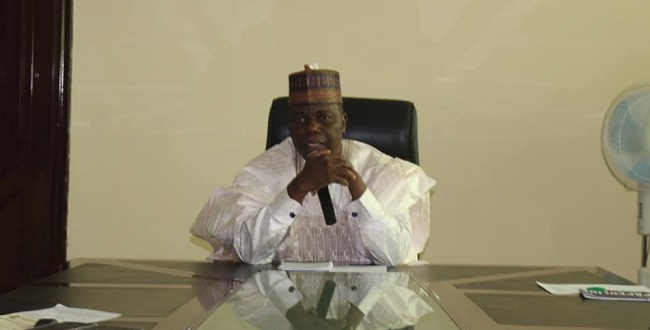Nigerian scientists and experts have called on the government to create an enabling environment for biotechnology to thrive in order to build, boost and sustain a national economy.

The experts spoke at a Biosafety and Biotechnology Sensitisation Workshop for North Central farmers and Agricultural Extension Agents in Abuja on Thursday, September 8, 2022.
Prof. Abdullahi Mustapha, Director General of National Biotechnology Development Agency (NABDA), in his presentation, said a quarter of the world population to rise by 9.5 per cent in 2050 would be in Africa.
According to him, to aid in the building and boosting of Nigeria’s national economy, the biotechnology and biosafety space must be encouraged to thrive.
He said that, presently, food production does not match the current population growth rate.
Mustapha said that Nigeria and Africa each year lose exponential amount in foreign exchange due to incessant food imports from developed countries.
“Transformation of agriculture in Africa requires a new approach focusing on Science, Technology and Innovations to increase productivity and generate surplus for trade and export,’’ Mustapha said.
The D-G urged that Nigeria and Africa must wake up to the reality confronting the continent regarding food insufficiency and supply by investing in the biotechnology and biosafety space.
He stated that the challenges of low food production, poor harvest losses, degraded soils, limited access to finance, dysfunctional markets, unconducive policies, and climate change, among others, could be overcome.
Mustapha said that some of these challenges were self-inflicted and could be surmounted with zeal in the application of modern biotechnology and safe application of biosafety measures.
In a keynote paper on: “The Role of Biotechnology in improving Agricultural Productivity”, he said that it was estimated that, by 2040, modern biotechnology companies would potentially contribute 20% of the world economy.
Dr Rose Gidado, Deputy Director of the NABDA and Country Coordinator of Open Forum on Agricultural Biotechnology (OFAB), said investment in awareness creation on agricultural biotechnology issues would deliver multiple positive responses.
“There is the need to unbundle the application of this biotechnology for national growth to secure popular support from the masses,” she said.
Gidado observed that developed nations of the world took advantage of the advantages biotechnology provided by investing in technology and growing their economies.
She said the objective of the workshop, among others, was to implement proactive communications strategy and policy, implement outreach and awareness framework, based on evidence.
“The need for safe biotechnology application especially in agriculture is integral to the roadmap towards achieving the set objectives of improving productivity and quality of food crops and income of farmers.
“It is therefore important to sensitise farmers in North central on the benefits of modern biotechnology practice to counter most health- related claims made by the antis,’’ Gidado said.
By Sylvester Thompson
